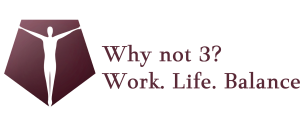A while back I was giving a complimentary workshop to support the Syrian refugees. During this workshop, one of the members asked me what you could do when you’re constantly thinking that you’re not good enough.
After my answer, I went on a deeper reflection to what that question actually entailed, and I ended up with this question:
What is self-awareness?
In this article, I want to cover the 3 Questions that I learned from my mentors that lead to a better self-awareness.
3-Level Debriefing
In order to grow your self-awareness, you need to be able to reflect. The good news is that you can use the same techniques as with large groups. During a very emotional conference, like a Leadership Development Seminar (LDS) one of the main techniques we use as facilitators is called the 3-level debriefing. In here you make sure to close each workshop and session properly for the delegates involved by asking them 3 relevant questions until you can feel they are comfortable enough to move on to the next sessions (aka they are properly debriefed).
Same applies to us if we had an emotional experience that we want to close for ourselves so that we can move on to the next step in our personal development.
Question 1: What happened?
This is an obvious one, as we start with the logical part of the brain. We just answer objectively (or write it down) as to what happened. Bullet points work great in this part. Don’t get angry or sad yet, that’s for the next question.
Question 2: How did you feel when that happened?
This is a tough one if you don’t have someone else to help you with this debrief. Sometimes it doesn’t matter how experienced you are, if you’re too emotionally involved with the subject it’s best to get outside counsel to get properly debriefed.
Another big note to take here is that you should go really deep here. The story is not properly closed for you if you haven’t gone until the end to debrief yourself. That’s why it’s possible that you’ll have to do this several times, just like you would with a group. If you’re not sure how to do that then scroll down to the part where I talk about circling back.
Question 3: What can you learn from this experience that you can apply in your everyday life?
It’s not a debrief if you can’t make it tangible for yourself. We can only truly close a story and move on when we’ve taken some lessons out of it. Else we’re doomed to make the same mistake over and over again.
Make sure to also write this down, just like with your goals, if it’s not written it doesn’t exist.
Circle back
Now at the end of this circle of 3 questions, you might notice that you’re not fully debriefed yet, that’s why you’ll have to go back to question 1 and see whether you have zoomed in on the right point. If you listen to your instincts you’ll know which point you’ll need to debrief next. You circle back and debrief every single point until you finally feel like you can move on. This is the reason why these debriefs can sometimes take an entire night!
Closing
Once everything is closed and you can move on, make sure to scribble down the last notes, also ask yourself if you’re content with the debrief or if you should have gone deeper. If you’re sure you’re done, then close the notebook you’ve been writing in, take a deep breath and move on.
You have now closed your debriefing
Hope that helps,
-L
If you’re not on the 30-day work-life balance challenge yet, make sure to jump on it before it closes. I explain more of these tips in there and show you how I apply it into my daily life :





Leave a Reply
Want to join the discussion?Feel free to contribute!